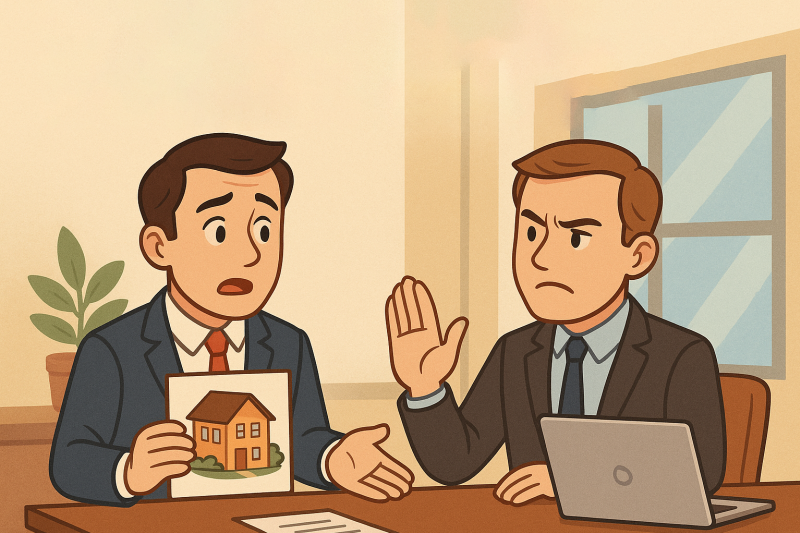WeChat ID :

It seems like many people misunderstand how agents work.
Let me clarify it like this.
.
Point #1
#Presenting a Property for Listing
If an agent brings a property to another agent,
asking them to help find a buyer
(perhaps due to unfamiliarity with the area, lack of time, or other reasons),
in the real estate industry, we call this a "Lead."
A referral fee of 10% (of the standard 3% commission) is usually given when the deal closes.
.
But if the agent has already talked to the owner
and secured an exclusive agency agreement,
that is called a "Refer."
In this case, the referral fee is 20% (of the 3% commission) upon successful closing.
.
These are basic industry ethics
that every agent should know.
.
Submitting a property and asking for a 50/50 commission split
while it’s merely a Lead,
is a misunderstanding of the practice.
.
And when I explain this clearly,
some still accuse me of being unfair
to the person who brought the property.
But I’d say—it’s actually the other way around.
That person is taking advantage of their fellow agent.
.
(I won’t actively market that property
because proper analysis and marketing that yield results
require time and budget.
I don’t just throw listings up on free websites like some people think.)
.
I’ll store that property away quietly in a corner of my hard drive.
If a buyer comes along whose needs match that property,
I’ll pull it out and we’ll split the commission 50/50.
(But I won’t remember every single one… it’s a gamble.)
.
.
Point #2
#Collaboration (Co-Broke / Co-Agent / Co-Work)
Co-agency is when
one party has the property
and the other party has the buyer—
they work together until the deal closes.
.
It’s NOT taking another agent’s property to market yourself.
That’s called laziness.
Nowadays I see many agents, even from big-name agencies,
doing this a lot—
even lowering the price below what the owner originally gave,
just to lead buyers to themselves.
.
Someone went through all the effort to
dress up, drive to meet the owner,
take photos, edit them to look appealing—
not for you to right-click, save as, and re-post.
.
If the property is clearly identifiable as one listed with my company,
and I never gave permission to use it,
I consider that copyright infringement,
which is legally punishable.
.
Every media file
is trackable—through watermarks
or the metadata embedded in photos and videos.
Even if you try to remove the watermark with software,
the digital DNA remains—you can’t erase it.
(I’ve started watermarking all our images recently.)
.
I always remind my team:
if you want to use the owner’s photos for marketing,
you must get written permission first.
Let’s avoid legal issues over rights violations.
.
If you make a mistake once, it’s okay—consider it ignorance.
But if you keep doing it,
it’s clearly your habit.
Then, we might need to make an example out of you
to set a standard for this profession.
.
Don’t think
just because you deleted the photo
or destroyed evidence
that it’s over.
.
Legally, compensation can still be pursued.
(I learned a lot about copyright when working in CGI for film.)
.
If you want to be a successful agent,
don’t do this.
It’s unethical
and unprofessional.
#TakeNote
#GoLearnProperlyBeforeWorkingInThisIndustry
.
Here’s a quick summary of the cases:
#Ex1
B presents a property to A to help sell = Lead
#Ex2
B presents a property to A to help sell,
has talked to the owner,
but no exclusive agreement was made = Lead
#Ex3
B presents a property to A to help sell,
has talked to the owner,
and an exclusive agreement was made = Refer
#Ex4
A announces they’re looking for a property,
B submits a property = Co-Agent
#Ex5
A markets a property,
B has a buyer = Co-Agent
.
join the discussion at
https://www.facebook.com/Ex.MatchingProperty/posts/pfbid0njK3BcyCa7HFwnewg6ySBcou7g2mcxmcXrPpeexSRSHg3F8PM2rewW4QYeFptCo3l